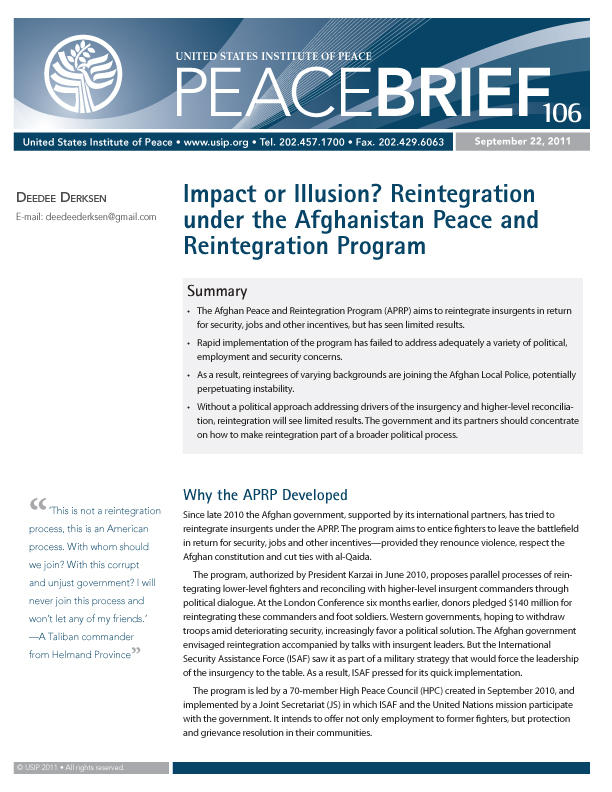Impact or Illusion? Reintegration under the Afghanistan Peace and Reintegration Program
The Afghan Peace and Reintegration Program (APRP) aims to reintegrate insurgents in return for security, jobs and other incentives, but has seen limited results.

Summary
- The Afghan Peace and Reintegration Program (APRP) aims to reintegrate insurgents in return for security, jobs and other incentives, but has seen limited results.
- Rapid implementation of the program has failed to address adequately a variety of political, employment and security concerns.
- As a result, reintegrees of varying backgrounds are joining the Afghan Local Police, potentially perpetuating instability.
- Without a political approach addressing drivers of the insurgency and higher-level reconciliation, reintegration will see limited results. The government and its partners should concentrate on how to make reintegration part of a broader political process.
About This Brief
Deedee Derksen is a journalist, Ph.D. candidate and author of “Tea with the Taliban,” a Dutch book nominated for a non-fiction award. This Peace Brief is part of a project by the Chr. Michelsen Institute (CMI), Peace Research Institute Oslo (PRIO), and the United States Institute of Peace (USIP) to identify issues and options to help Afghanistan move toward sustainable peace. Research was conducted in Kabul and two provinces, Baghlan and Helmand, and included about 65 interviews with Afghan and Western officials, active and reintegrating insurgent commanders and analysts.
Explore Further
- Afghan Perspectives on Achieving Durable Peace
- Designing a Comprehensive Peace Process for Afghanistan
- Making Peace in Afghanistan: The Missing Political Strategy
- Missed Opportunities: The Impace of DDR on SSR in Afghanistan



